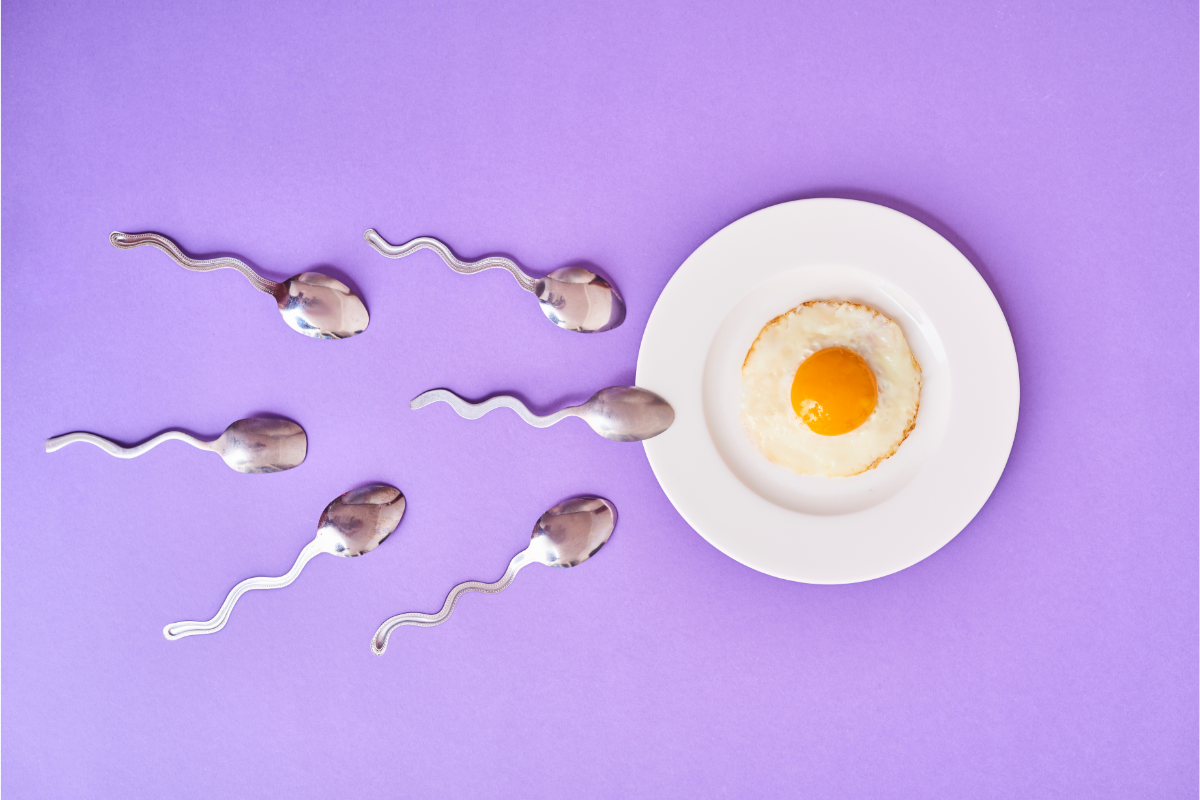When a couple wants to conceive a child, the emphasis is often on medical examinations and specific treatments in case of difficulties. However, one key factor is sometimes overlooked: diet and micronutrient intake. Numerous studies show that certain essential nutrients play a major role in fertility, in both men and women. Adopting a suitable, balanced diet can naturally improve your chances of conceiving. In this article, we’ll look at how micronutrition influences fertility and which nutrients are essential for boosting your baby-making plans.
What is micronutrition and why is it important?
Micronutrition, a fast-growing scientific discipline, focuses on the intake and balance of essential micronutrients such as vitamins, minerals and fatty acids. Although these nutrients are needed in small quantities, they play a crucial role in the proper functioning of the human body.
Definition and role of micronutrients in the human body
Micronutrition is an approach that aims to optimise the intake of vitamins, minerals, trace elements and essential fatty acids to ensure that the body functions properly. Unlike macronutrients (proteins, carbohydrates, fats), these nutrients are required in very small quantities, but their impact on health is considerable. Micronutrients play a vital role in various bodily processes, including maintaining immune function, skin and eye health, growth and development, and even fertility.
When it comes to fertility, micronutrients play key roles
- The production of sex hormones (oestrogen, progesterone, testosterone).
- Maturation of eggs and sperm.
- Regulation of the menstrual cycle and ovulation.
- Protection of reproductive cells against oxidative stress.
An imbalance or deficiency in certain micronutrients can therefore reduce the chances of conception and complicate a pregnancy in progress.
Essential micronutrients to boost fertility
Fertility problems can be a source of frustration and worry for many couples who want to conceive a child. Fortunately, there are dietary supplements that can help improve fertility by promoting reproductive health. In this article, we’ll explore the best food supplements for increasing your chances of conception.
Omega-3: improving egg and sperm quality
Omega-3 fatty acids are essential fatty acids that play an important role in many bodily functions, including reproductive health. They are essential for fertility because they :
- Improve the quality of egg and sperm cell membranes.
- Promote better blood circulation to the uterus and ovaries.
- Reduce inflammation and oxidative stress, which can disrupt ovulation and embryo implantation.
==> Where to find them? Oily fish (salmon, sardines, mackerel), linseed oil, walnuts, chia seeds.
Vitamin D: hormone regulation
Vitamin D is an essential nutrient that plays an important role in fertility, particularly in women. It plays a key role in hormonal balance and reproduction:
- In women, it promotes regular ovulation.
- In men, it improves sperm mobility.
- It also helps prepare the endometrium for better embryo implantation.
==> Where can I find it? Exposure to the sun, oily fish, egg yolks, mushrooms. To ensure adequate levels of vitamin D, supplementation may be recommended, especially if you are deficient.
Zinc: impact on gametogenesis
Zinc is an essential mineral that plays a crucial role in fertility in both men and women:
- It is essential for egg and sperm maturation.
- It helps produce testosterone, which improves sperm quality.
- It plays a role in cell division in the embryo after fertilisation.
==> Where can I find it? Red meat, oysters, pumpkin seeds, lentils. If you have difficulty obtaining enough zinc from your diet, zinc supplements may be considered.
Folic acid: prevention of neural tube defects
Folic acid, also known as vitamin B9, is essential for DNA formation and cell division (vitamin B9). It is often recommended to women before and during pregnancy to :
- Reduce the risk of congenital malformations (spina bifida).
- Promote high-quality ovulation.
- Improve cell division in the early stages of pregnancy.
==> Where can I find it? Green vegetables (spinach, broccoli), chickpeas, citrus fruit.
Iron, copper, selenium: hormonal balance and conception
These three trace elements work together to :
- The proper functioning of the thyroid, essential for fertility.
- Protecting reproductive cells against oxidative stress.
- Improving ovulation and the production of healthy spermatozoa.
==> Where can you find them? Pulses, meat, seafood, Brazil nuts.
Coenzyme Q10
Coenzyme Q10 is a powerful antioxidant involved in cellular energy production. It is also associated with improved egg and sperm quality. With age, the natural production of coenzyme Q10 decreases, which can affect fertility. As a dietary supplement, coenzyme Q10 can help support reproductive health by increasing cellular energy levels and improving gamete quality.
Should I take a supplement?
Before taking a supplement, it is essential to check your nutritional status with a health professional. A blood test can identify any deficiencies and enable a personalised adjustment to be made.
Targeted supplementation can be beneficial in the event of a proven deficiency, but a balanced diet remains the best approach. While a healthy diet (avoiding processed products) and a balanced lifestyle help to combat infertility, a micronutritional assessment can highlight deficiencies in certain micronutrients that promote fertility.
Beware of excess and self-medication, as too much of a good nutrient can be harmful! For example:
- Too much vitamin D can cause kidney problems.
- Too much iron can be toxic for the body.
- Too much iodine can upset the thyroid.
Always seek professional advice before taking food supplements.
Diet and fertility: practical advice and natural remedies to boost fertility
Diet and lifestyle play a key role in fertility, for both men and women. Here are a few essential tips to help you maximise your chances.
Adopt a balanced diet
A balanced diet rich in fresh fruit and vegetables, lean proteins and whole grains can help provide the micronutrients needed for good reproductive health. Balance omega 3 and 6 intakes. Avoid processed products and opt for a balanced diet. Industrial and ultra-processed foods are often rich in endocrine disruptors, refined sugars and poor-quality fats, all of which can harm fertility.
Do some physical exercise
Regular physical activity can help improve fertility by promoting a healthy body weight and reducing stress. This can have a positive impact on fertility. Try to engage in moderate physical activity, such as walking, swimming or yoga.
Stress management
Chronic stress can affect fertility. Stress management techniques such as yoga, meditation, cardiac coherence or mindfulness can help manage the stress associated with infertility.
What if improving fertility meant banning pesticides?
The birth rate is falling sharply in France and in many countries around the world. In 2023, France recorded 678,000 births, 20% fewer than in 2010. This decline can be explained in part by a shift in women’s priorities: 91% of childless women say they are focusing on their personal development, while anxiety about the future and economic difficulties are also cited as the main reasons. The health of pregnant women is also a growing concern. Certain pathologies such as gestational diabetes, which now affects 16.4% of pregnant women, are on the increase. An Israeli study has highlighted a link between intestinal microbiota and the early development of gestational diabetes, suggesting that monitoring microbiota could help detect it earlier.
Another worrying factor is the impact of pesticides on pregnancy. Although some pesticides, such as chlorpyrifos, have been banned in France since 2020, their residues persist in the soil and continue to expose people. These substances disrupt the intestinal microbiota, influencing metabolism and increasing the risk of complications for both mother and child. Research suggests that prebiotics, such asinulin, could mitigate these harmful effects.
Conclusion
The falling birth rate raises multiple issues: lifestyle choices, maternal health and environmental impact. Better management of the microbiota and stricter regulation of pesticides could be ways of reversing the trend. Infertility can be a difficult ordeal for many couples. Fortunately, micronutrition offers a natural approach to increasing your chances of conceiving. Micronutrition can also help expectant mothers to have a better pregnancy by helping them to understand their specific micronutrient requirements (Iron, Iodine, Vitamins B9, D, Calcium, Magnesium, Omega 3 DHA). Whether through food supplements or a healthy lifestyle, there are several ways to support your fertility with micronutrition.
Source:
- https://www.anses.fr/fr/content/les-perturbateurs-endocriniens-un-defi-scientifique
- https://www.who.int/fr/news/item/04-04-2023-1-in-6-people-globally-affected-by-infertility
- National Institutes of Health (NIH), 2021 – Role of omega-3, zinc and folic acid in improving gamete quality and hormonal balance.







